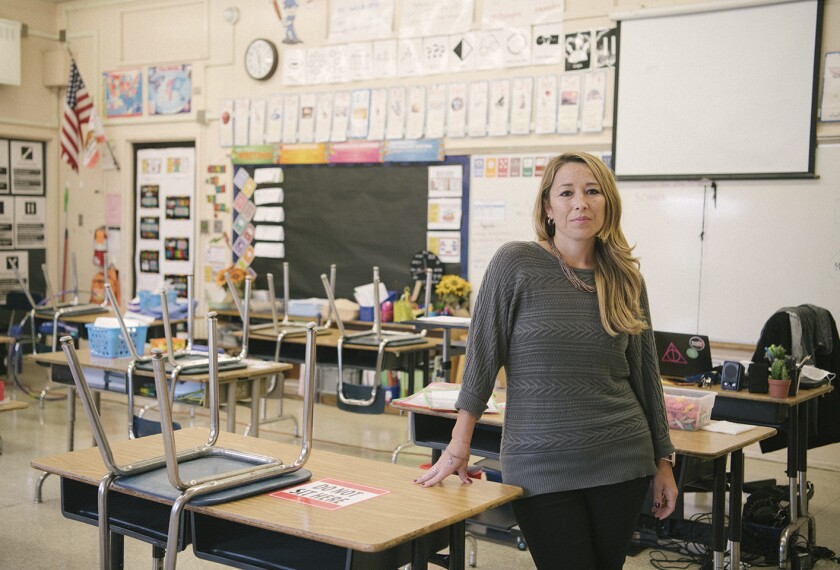For a novice teacher, a great mentor can mean the difference between launching into a successful career and burning out in the first few years.
When teachers have effective mentors, they can improve student learning in their first year as much as those without mentors perform in their third year of teaching. But schools and districts often structure their mentoring programs in ways that can undermine these relationships, according to a new report by the nonprofit New Teacher Center, which works with school districts to develop and improve induction programs for novice teachers.
“A lot of people have moved away from this idea of a ‘buddy’ mentor to saying, we need someone who can really support our teachers with instructional focus, setting up optimal learning environments for students,” said Vera-Lisa Roberts, a program specialist with the center. “What we have found is having a full-time coach or mentor assigned to a teacher—able to meet with them on a regular basis to help them plan, observe instruction, provide feedback, analyze student learning, get to know their students—that has been the link that has helped a lot of teachers feel connected.”
“Just like you want your students to feel emotionally, intellectually, and physically safe, how do we provide that same experience for our teachers?” Roberts said.
Roberts suggested three critical but often-overlooked practices for building effective teacher mentoring.
1. Pick the right people
Administrators should have a set process and clear criteria to choose mentors, the report said. Even those with content and classroom expertise also need relational skills: knowledge about how to collaborate, and the ability to address specific teacher needs.
For example, Hawaii offers specialized mentors for teachers hired under emergency credentials to fill special education shortages. These teachers often need help understanding how to manage paperwork associated with individualized education programs and working in co-teaching environments, a common arrangement in mainstream classrooms.
2. Define roles for mentoring
Mentors need clear roles, according to Tracy Laughlin, the New Teacher Center’s communications director. Without them, mentors often get tapped to revise curriculum, administer assessments, and other tasks.
“As mentors and coaches get assigned all these other duties as well, they spend less and less time doing that [mentoring] work,” Laughlin said.
One 2012 study suggested those teachers who mentored only part time, in addition to other instructional or administrative roles, had “less connection with the goals of the program, and may be likely to do their own thing with novices.”
It’s also important, Roberts said, for the teacher, mentor, and administrator to understand their separate responsibilities, “so that we’re all informed of those same goals and we’re working in support of everything, rather than [the teacher saying], ‘Here’s the principal giving a message. Now my mentor’s giving me this message, and I’m hearing two different things.’”
3. Dedicate the time
“One of the most common mistakes districts make is when they do not provide the sanctioned time for the mentor and the mentee teacher to have those one-on-one conversations,” Roberts said.
About three-quarters of the more than 1,000 districts nationwide which the New Teacher Center works with set and protect time for mentoring and teacher collaboration as part of the normal school schedule.
“New teachers need community. Whether it be through professional learning time, office hours, coffee time, but new teachers really need to come together with one another for that support,” Roberts said. “If not, you can feel a lot of isolation. You can feel that you’re the only one who is experiencing this, when we know that that’s not the case.”









